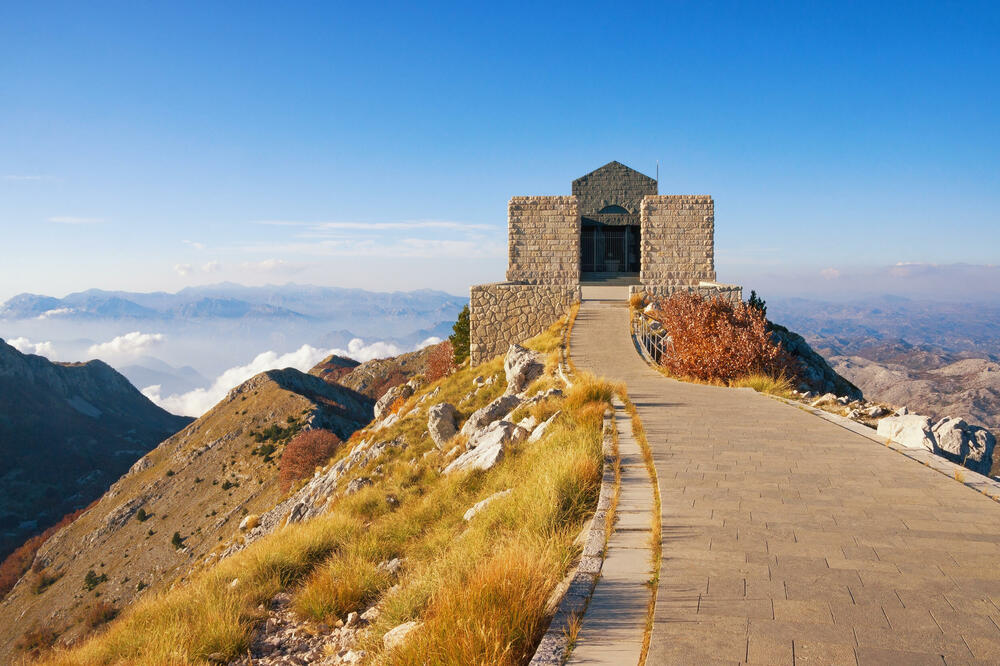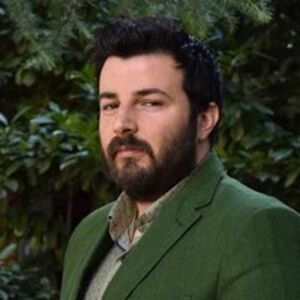The Metropolitanate of Montenegro and the Primorska (MCP) advocates for the restoration of the church on Lovcen in the form it was built in Petar II Petrović Njegoš and it is neither for the demolition of the mausoleum, nor for its relocation, the Secretariat of the Metropolis told "News".
"The Metropolis is advocating for the restoration of the church of St. Peter of Cetinje in Lovćen - Njegoš's endowment. Everything that was saved from the old material should be used, of course, keeping in mind today's construction standards. From your question, we see that a difference is made between the church until 1916 and the one rebuilt in 1925. According to the most relevant testimonies, the chapel was rebuilt between the two wars on the foundations and dimensions of the one demolished in the First World War. The Metropolis would insist that the restored church be as faithful a replica as possible of the one that was built during the time of Metropolitan Peter the Second Petrović Njegoš", it is stated in the answers to the questions of "Vijesti".
When asked where exactly they want to build a church on Lovcen, the MCP states that "the exact location remains a subject for consideration, considering that building at those heights and on top of the mountain is an exceptional engineering challenge."
"For us, it is important that the restored Lovcen chapel decorates the top of Lovcen approximately in the image that all of us Orthodox have in our minds and in the depths of our souls," added the answer.
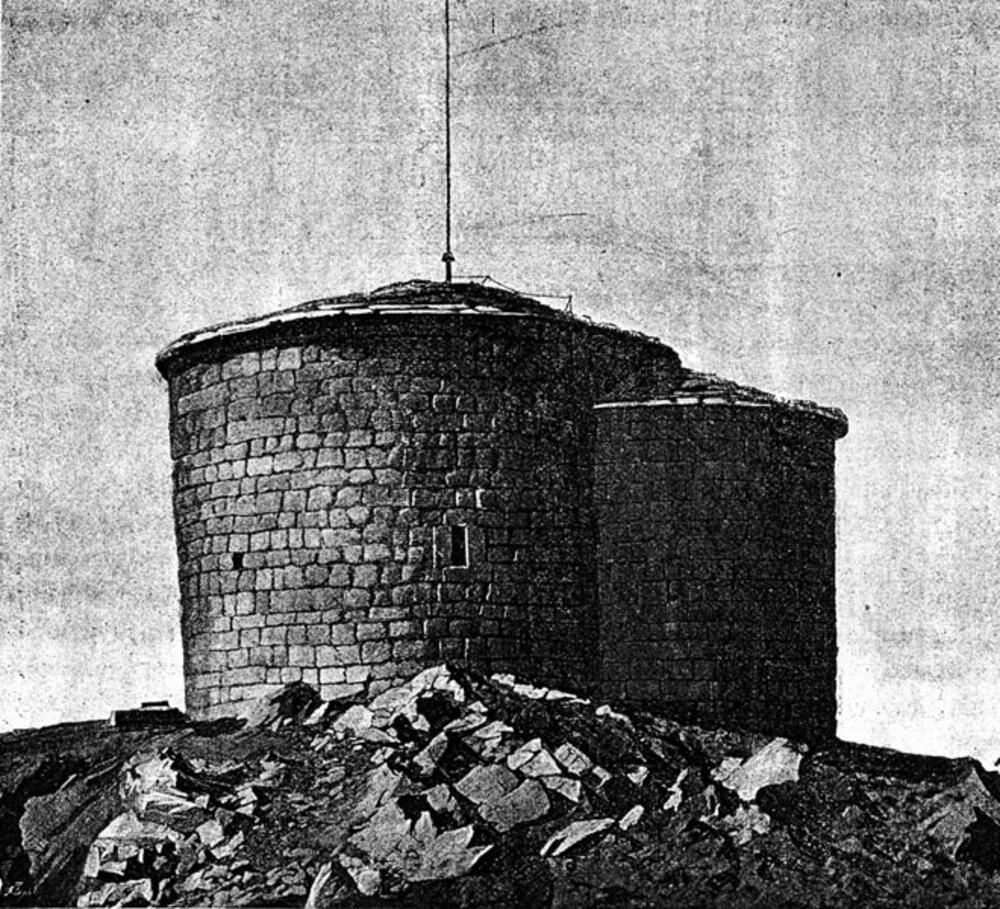
Amfilohije wrote to Lukšić ten years ago
In a letter to the then prime minister Igor Lukšić sent by the late Archbishop of Cetinje and Metropolitan of Montenegro and the Littoral Amphilochius, in which he demands the restoration of the church on Lovćen, it is suggested that the church be built in the immediate vicinity of the mausoleum.
"If it is not possible to erect it in the same place (it seems to be the atrium of the mausoleum) where Njegoš laid the foundation stone with his own hand and where it was built and renovated in 1925, erect it in the immediate vicinity, in the area between the exit from ( monstrous) tunnel and atrium of the mausoleum (there are two extensions, on the path to the mausoleum, completely adequate for the size of the original Njegoš endowment, without the later (1925) added fence)", Amfilochius' letter states.
The Metropolis quotes this very letter from Amphilochius in response to the question of whether they think the mausoleum should remain in its place.
"To quote the letter of Metropolitan Amfilohi to Prime Minister Igor Lukšić, sent to him a little over ten years ago as a request for the restoration of the chapel: 'Meštrović's mausoleum remains in its place, as an expression of the spirit of its time'. "All the media manipulations of the last few days about the alleged call for the demolition of Meštrović's mausoleum are the most common fabrications calculated to provoke hatred and intolerance towards the Church," says the Metropolis.
It is in the media section, after a panel was held on which the Metropolitan of Montenegro and the Littoral was present Joannikius spoke about the restoration of the church in Lovcen, it was announced that the SPC is in favor of demolishing the mausoleum. Part of the political parties, part of the non-governmental sector and individuals reacted violently to the information published in this way...
When asked whether the Metropolitanate of Montenegro and the Littoral is advocating that the remains of Peter II Petrović Njegoš be exhumed and transferred to the church, the MCA answered in the affirmative, stating that this way fulfills his bequest.
"It is a great and grave sin to disrespect the last will of any person, let alone Njegoš's vow to the Montenegrins," added the Metropolis.
The Metropolis did not answer whether the state institutions responded to their requests in this matter, but only that there were several such addresses, the most important of which was the letter of Amfilohi to Lukšić from June 2012.
Not from mistake to mistake
Member of Parliament, long-time diplomat and leader of DEMOS Miodrag Lekić he told "Vijesti" that he believes that the mistake was the demolition of the chapel and that the new mistake would be the demolition of the mausoleum and the return of the chapel to Lovćen.
"I think it was a mistake to demolish the chapel on Lovcen and build the mausoleum. The reasoning for this attitude would require a lot of space. In short, the burial in the church on Lovcen was not only the wish of Petar II Petrović Njegoš, but the chapel, with its modest Christian appearance, depicted much more the bishop and statesman of a small poor nation with whom he shared his fate until the last day of his life. The burial place of another literary great Tolstoy, just exudes authenticity and modesty at the same time. The pretentious monumentality of the mausoleum, at times of pharaonic lines or associations, evoked much less the Montenegrin bishop, statesman and poet of freedom. Finally, the dimensions of the construction of the mausoleum have seriously changed the natural peak of Lovcen, which is a monument of nature in itself," Lekić points out.
He says that his position is based on his subjective aesthetic judgment and understanding of Montenegrin history, and that he has no intention or right to disregard different opinions on the same topic.
"Considering that it was a mistake to demolish the chapel, let me immediately state the position that now it would be a new mistake to demolish the mausoleum and return the chapel to Lovćen. One such undertaking would once again make Lovćen peak the biggest victim. On the other hand, I am afraid that we would not create the impression of a serious people if every thirty years we polemically demolish and build buildings on top of Lovćen, a mountain that is the historical symbol of this country. After all, there has been a proposal for a long time to restore the chapel in its former dimensions and with authentic materials, and place it in the mountainous environment of Lovcen, on Ivan's beds. Perhaps this is also a solution to a topic that, for a long period of time, often goes beyond the scope of rational judgment, leaning more towards political, ideological and national criteria, unfortunately also passions", concludes Lekić.
Radical rhetoric of Ioannici
In addition to the polemic about the construction or renovation of the chapel, the public's attention was also attracted by the rhetoric of Metropolitan Joaniki of Montenegrin and Littoral, who spoke about the fact that Montenegro had been invaded by the "Ustašluk" and that it should be "cleansed" of it, and earlier he said that Montenegro Gora designed to be a "little Ukraine". He neatly insists on the dichotomy between partisans and Chetniks...
"Vijesti" also sent questions for Metropolitan Joaniki to the address of the Metropolis, which were answered with the indication that the questions were addressed personally to the Metropolitan, also answered on behalf of the MCP.
When Joaniki was asked to clarify the statement where he stated that Montenegro was "overrun by the Ustašluk", the MCP said that the church in Lovćen was demolished fifty years ago with "monstrous arguments Savić Marković Štedimlija, infamous Pavelić's collaborators, which, unfortunately, were generally accepted by the then Montenegrin communists, and all with their support Josip Broz Tito. "
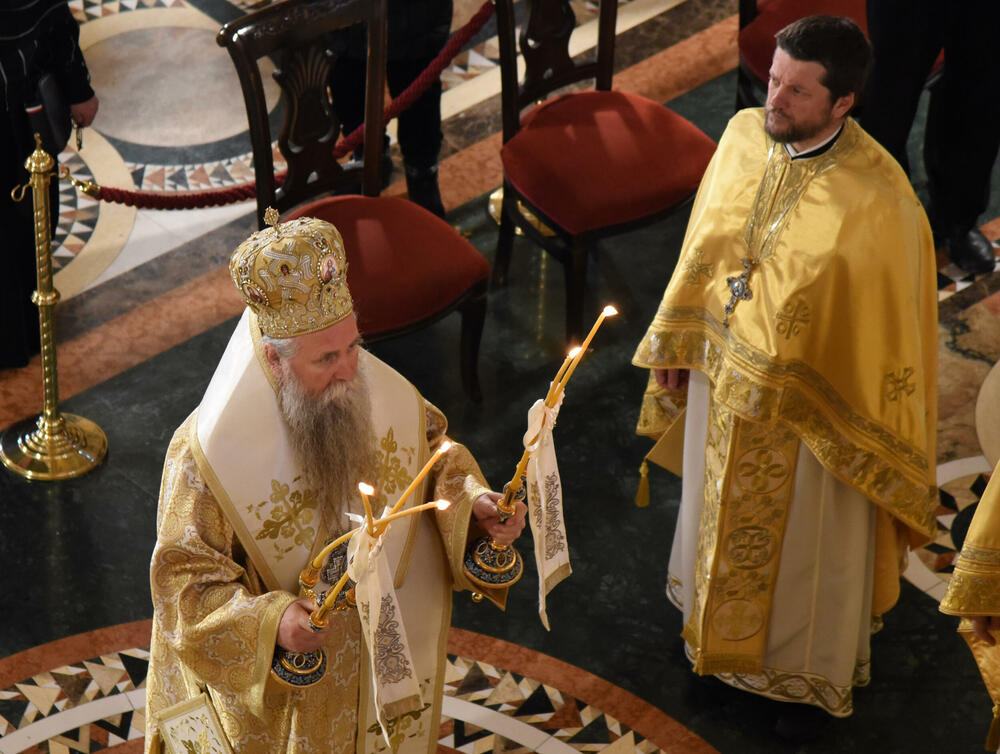
Ante Pavelić was one of the founders of the Ustasha movement, a war criminal and the leader of the puppet Independent State of Croatia.
The MCP claims that there was cooperation between Nazism and Communism, "which can still be recognized in some traces even today, in the rhetoric of opponents of the restoration of the Lovcen Chapel".
When asked what Ioannikije specifically meant when he said that Montenegro should be cleansed of "ustashluka" and "evil communist thought", the Metropolis stated that part of it was explained in his speech, but that it was only partially and superficially conveyed.
"The Metropolitan clearly states that 'universal repentance and conversion' and 'universal repentance and reconciliation' are necessary, which are prerequisites for the restoration of the Lovcen Chapel. Her return to Lovćen would be a visible sign of the aforementioned reconciliation and liberation from the grave sin of trampling on Njegoš's legacy."
When asked if Joaniki is responsible for the radical rhetoric he uses, given that he is the religious leader of the largest religious community in Montenegro, the MCP said that Joaniki's rhetoric was maliciously interpreted and taken out of context, and that it cannot be called radical "in its integral form".
"If, on the other hand, by radical rhetoric, you mean a determined call for each individual and all of us together as a society to finally face our fears and forbidden topics of our past, then we believe that there is nothing negative in it and that it belongs precisely to the Metropolitan of Montenegro, as per tradition , as well as for the role it plays in today's Montenegro."
And when asked about the fact that Joanikije said that Montenegro was designed to be a "little Ukraine", the MCP stated that this is also a phrase that is misused "for the purpose of demonizing our Church and Metropolitan Joanikije personally".
"Whoever listened to or read that sermon, it is clear to him what the Metropolitan meant. The Metropolitan said that we pray to God for the people in Ukraine who, unfortunately, have quarreled with each other and that these divisions and quarrels do not seem unknown to us, because there are many of them in our country. The Metropolitan, therefore, warned the people of Montenegro to reject all unnecessary, artificially induced, mutual divisions, because they cannot bring good to anyone, as we can see in the example of the quarreling, but close to us, Ukraine."
Pollution of public space and production of tension
Sociologist Andrija Djukanovic believes that Ioanniki's statements are inappropriate and do not contribute to reconciliation, but that such statements only deepen divisions.
"Comparisons of the situation in Montenegro with the situation that prevailed in the NDH are exaggerated and do not correspond to the facts. Of course, there was discrimination against politically and ethnically unsuitable people in the previous 30 years, but it was not exclusively Serbs. All those who were not part of the DPS and their coalition partners suffered discrimination. There are extreme individuals who express fascist attitudes towards the Serbian people, but it is by no means to the extent that the Metropolitan announces. Especially today, when members of the Serbian people are in the government, directors of the largest companies, etc. Therefore, it is not good to publish inaccurate claims because they fuel already strong enough hatred and intolerance among citizens of different political views," says Đukanović.
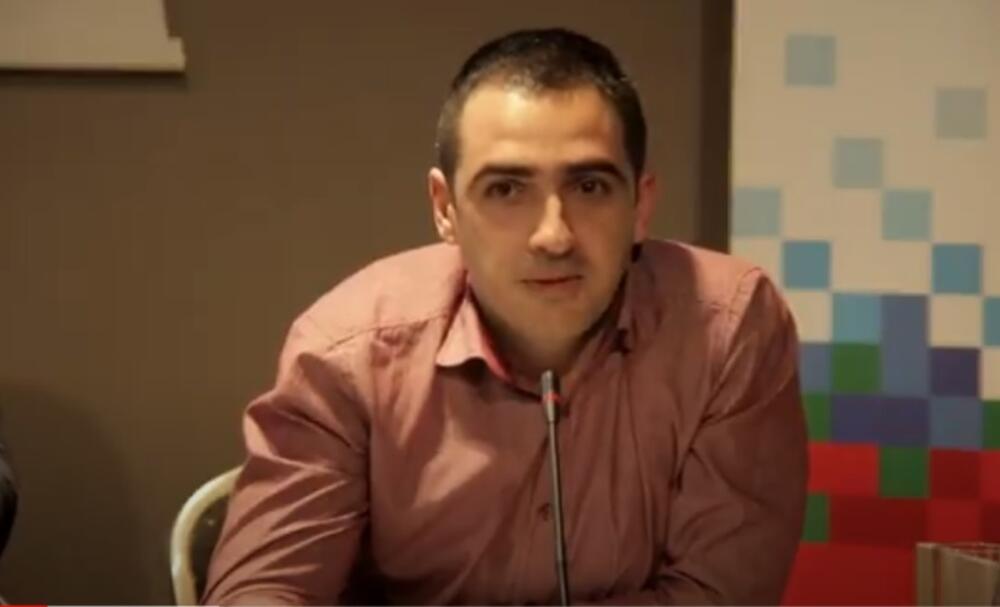
Lekić believes that the radicalization of public speech and the inflation of irresponsible words is an integral part of the downward spiral in which Montenegrin society finds itself and that this not only pollutes the public space, but also produces increasing tension in society.
"With the remark that in my modest interests I am more interested in religion as something personal, than in the church in terms of collective identification - I would say that it is to be expected that from the church, I mean the overall environment of church pluralism, the voice of rationality, the calming of tension, the impulse for social chords. Even if the shadows of the once brutal, in any case uncivilized persecution of the church by revolutionary authorities and frightened atheist fundamentalists persisted, especially in one historical period, we should use adequate words to address this legacy of our area. A controversial heritage in which there were different balances, positive and negative results", Lekić points out.
Đukanović states that we can agree that communism as a system was not the best for the development of democracy and that it created social injustice, but he also adds that Metropolitan Joanikije openly glorifies and celebrates the Chetnik movement that committed mass crimes and collaborated with the occupier.
"Why don't Metropolitan Joanikije and the SPC hold a memorial service for the people shot in Lazin, who were killed by members of the Chetnik movement? Why is there no condemnation of the mass crimes committed by the Chetniks against the Muslim population? Why is there no conviction of war crimes in the last civil war in the former Yugoslavia? We have never heard SPC metropolitans speak about it. It is justified to criticize the communist government and speak openly about its mistakes, which undoubtedly were there, but it is also unacceptable for someone who believes that it is an authority to turn a blind eye to the evil that the other side did. At the end of the day, that's not Christian," Đukanović points out.
It is not good for church and state to be too close
Lekić points out that it is easier to contribute to the destruction of the public, and more difficult to communicate messages of coexistence, and that this applies to our "total spiritual geography".
"It is also not good that the church and the state are too close. This is also confirmed by the period after the elections in August 2020. It is not good when the state and the church are in open conflict either. Here we have different stages with exciting twists. All this is transferred to the citizens, of course in a negative sense. All actors of the whole life, including the church, have a great responsibility for public action. The country is still the largest. Therefore, it is up to the state to direct the ruling and value vector of time. The attitude towards the church also depends on its ability, on the maturity of those who lead it. Therefore, the church must have its autonomy, but also the willingness to respect the rules of the state on whose territory it carries out its spiritual mission", concludes Lekić.
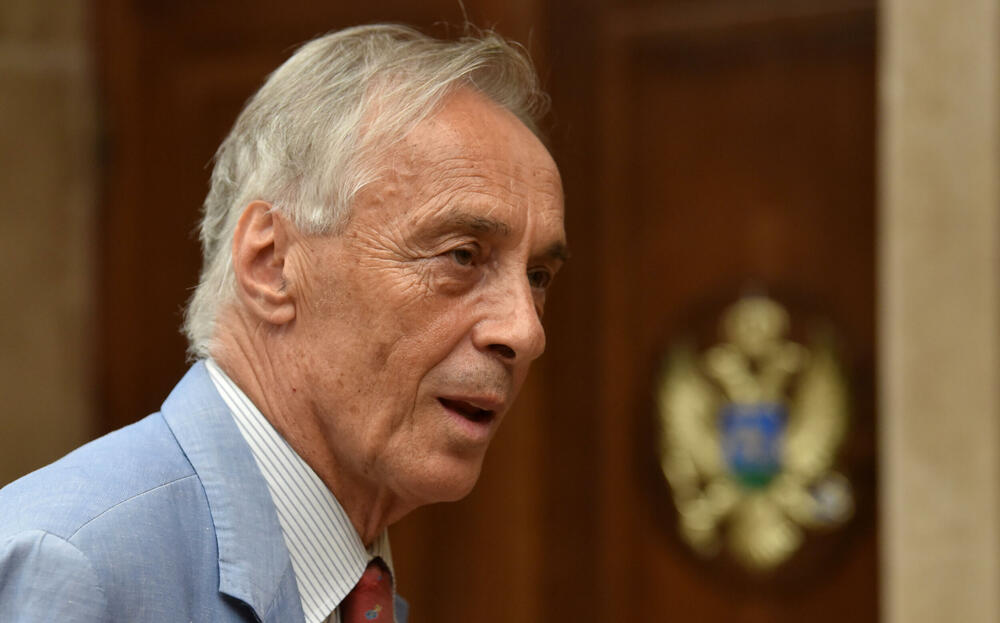
Đukanović expects more tolerance in the public appearances of church leaders considering the influence they have among citizens.
"The exclusivity shown by the church and its metropolitan towards everything that deviates from their world view is seriously worrying. For the metropolitan, all those who think differently are godless, satanists... This does not contribute to understanding and tolerance, but to the dehumanization of those who think differently, who thus become a legitimate target of verbal, and possibly physical violence. Creating a division between believers and ungodly is a dangerous thing.”
He also believes that radical rhetoric in society is first born among political actors, and then reaches citizens through the media.
"It is a dangerous situation when the possibility of dialogue between different people is impossible. And dialogue is impossible among those who declare themselves traitors, enemies, heretics, impious people. Then only the possibility of conflict and violence remains. The greatest responsibility, therefore, lies among political parties, but also religious leaders since they have the greatest influence on citizens. Dialogue is necessary. However, as things stand now, it is hard to expect that to happen. Parties are enamored with getting votes, especially now before the new elections. On the other hand, we also have the activity of the church that fuels divisions. How far we will go with this kind of communication remains to be seen, it seems that we are not going in the right direction", says Đukanović.
The URA Civic Movement, headed by the Montenegrin Prime Minister, also responded to the messages of Joaniki Dritan Abazovic. This party said that Montenegro "has not been invaded by any Ustashlik", as Joanikije claims.
"Metropolitan Joaniki's messages do not contribute to coexistence and interfaith harmony. "Montenegro has not been affected by any 'Ustašluk', but it is a country where no one is and should not be discriminated against because of their personal preference or affiliation," the announcement states.
Secretary General of the Democratic Party of Socialists (DPS) Aleksandar Bogdanović called on the authorities to react and investigate whether there is hate speech in Joaniki's address.
"From 'Little Ukraine' to allegations of 'ustatism', Joanikije always manages to prove only one thing - that he is fully committed to manipulations, spreading hatred and creating discord," Bogdanović said on Twitter.
Ustaštvo and Mićović's (surname Joaniki) Chetniks are two sides of the same fascist coin, the general secretary of the Social Democratic Party (SDP) said earlier. Ivan Vujović.
"Vucicev (Aleksandar, the president of Serbia) the pope once again speaks about the demolition of the Mausoleum. And he continues to ramble on about communism and Ustasha, while he holds memorial services for war criminals and admires their ethnically pure deeds," Vujović said on Twitter, with the message "you destroyed what you destroyed".
Pantelić: This issue is the last thing that Montenegro needs
Sometimes it seems that politicians and public figures in the territory of the former Yugoslavia, as Richard Holbrooke would say, not only never miss an opportunity to do something good, but never miss an opportunity to add fuel to the fire. Without entering into the discussion of whether Njegoš's chapel should be rebuilt on the site of today's Meštrović's mausoleum or built next to it, dragging this issue out at this moment is the last thing that Montenegro needs, according to journalist Željko Pantelić.
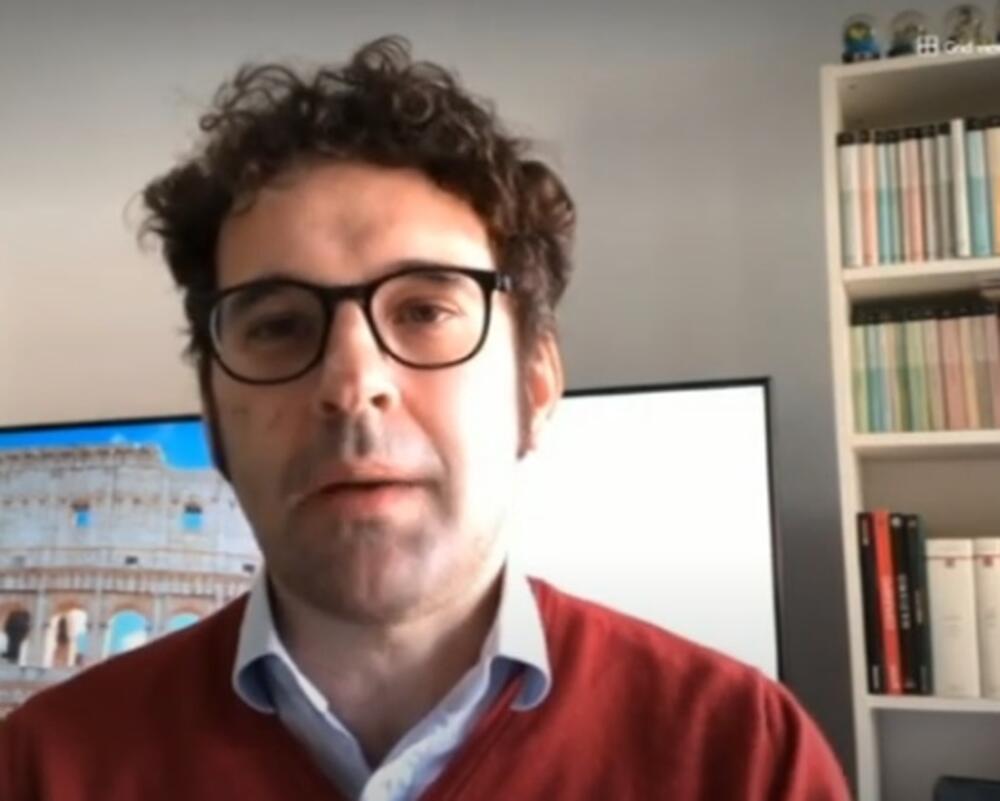
He points out that sometimes it seems as if the performances of the opposing sides are synchronized almost to perfection to fan the flames of conflict, frying every meter of interspace for agreement and mutual understanding, reducing everything to an insurmountable separation in the style of whoever is not with us, he is against us.
"Since I do not believe in conspiracy theories, I find it a symptomatic coincidence that within 24 hours the Metropolitan of Joanikije, Prince Filip Karađorđević and the founder of the United Montenegro party, Goran Danilović, give justifications, assistance and ammunition to the opposing camp, which has been campaigning against the MCP and SPC and the signing of the Basic Agreement. And that at the moment when members of the previous thirty-year ruling regime are trying to politically compromise Dritan Abazović and thwart the signing of the contract that regulates relations between the state and the SPC," Pantelić told "Vijesti".
He adds that Metropolitan Joanikije, despite the fact that he is not obliged to understand political dimensions and correctly interpret worldly events, must have enough tact to make conciliatory, measured and thoughtful statements, in a Christian, not a political spirit.
"Christians, especially the clergy, should not be characterized by the behavior of responding to an insult with an even greater insult, but to try to understand their neighbor, even if they disagree with him. It is not Christian to insult and threaten, but to forgive and understand," Pantelić points out.
He also advised Prince Filip Karađorđević to keep his views on sensitive issues that arouse emotions among the citizens, especially in a country that does not even have a theoretical heir to the throne, to himself.
Bonus video:



